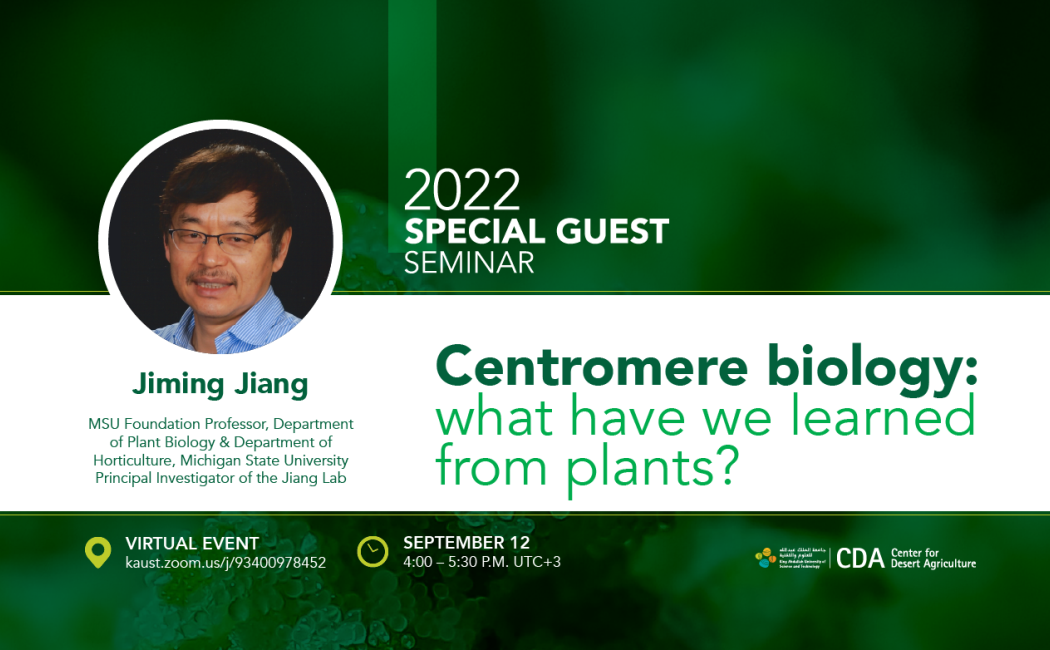Detail

Centromere biology: what have we learned from plants? - by Prof. Jiming Jiang
Speaker: Jiming Jiang
MSU Foundation Professor, Department of Plant Biology & Department of Horticulture, Michigan State University (US)
Principal Investigator of the Jiang Lab
– Hosted by Professor Rod A. Wing
Join us on Zoom.
Abstract
The functional role of the centromere as the chromosomal attachment site for spindle fibers was recognized more than a century ago. However, up to the middle 1990s, scientists did not know the DNA sequences or chromatin structure of centromeres in higher eukaryotes. In 1996, plant scientists discovered several repetitive DNA elements that are conserved in the centromeres of distantly related plant species, which opened the door for plant centromere research. Centromeric chromatin is specified by the presence of a special histone H3 variant, CenH3. The establishment and maintenance of centromeres is not defined by the underlying DNA sequences. A centromere can be inactivated by losing its CenH3, activated in a non-centromeric region, or re-activated from a previously inactivated centromere by gaining CenH3. Several plant species have provided excellent models to dissect the genetic and epigenetic changes that may play a role in centromere function and evolution.
About the speaker
Jiming Jiang is a MSU Foundation Professor with the Department of Plant Biology and the Department of Horticulture at Michigan State University (US) since 2017. He obtained his PhD from Kansas State University (US), where he also worked as Postdoctoral Associate for the Department of Plant Pathology. After conducting research as a Postdoctoral Associate with the Department of Genetics at Yale University (US), he became Assistant and subsequently Associate, Full, and Campbell-Bascom Professor with the Department of Horticulture at the University of Wisconsin-Madison (US). Jiang is a Fellow of the American Association for the Advancement of Science (AAAS) and received several honors and award throughout his career, including the Young Crop Scientist Award, H. I. Romnes Faculty Fellowship, and Kellett Mid-Career Award.